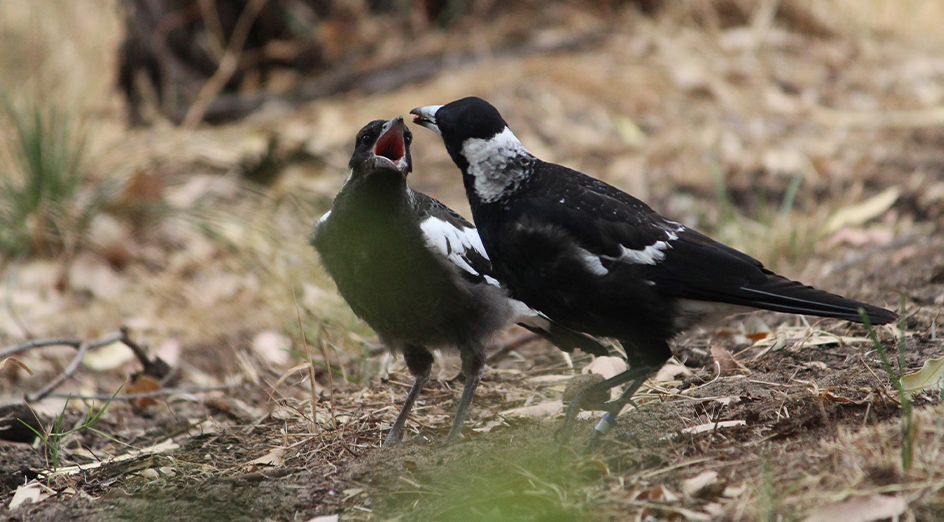Study Finds Social Intelligence Trumps Genetics in Clever Magpies
Having a smart magpie mum is no guarantee you’ll be a smart magpie baby but magpies raised in larger groups are more intelligent than those raised in smaller groups.
“Magpie babies raised in larger groups demonstrated superior performance in associative learning tasks compared to those raised in smaller groups.”
Dr Lizzie Speechley, UWA
That’s the finding from a new study Heritability of cognitive performance in wild Western Australian magpies, published today in Royal Society Open Science, which looked at intelligence inheritance and social dynamics among wild Western Australian magpies.
Lead author, behavioural ecologist at The University of Western Australia’s School of Biological Sciences Dr Lizzie Speechley, said the research uncovered little evidence to support a correlation between the cognitive abilities of magpie fledglings and maternal intelligence.
“What we did find, however, was that the social environment of these young birds had a significant impact on their smarts,” Dr Speechley said.
“Magpie babies raised in larger groups demonstrated superior performance in associative learning tasks compared to those raised in smaller groups.”

The study, conducted over the first year of life of magpie fledglings, presented them with a test where they had to learn to associate a colour cue with a food reward.
The results shed light on the intricate interplay between genetics, social dynamics, and environmental factors in cognitive development, and challenge traditional notions of the inheritance of intelligence.
“Our research underscores the significance of the social environment in fostering cognitive development, not only in magpies but potentially in other species as well,” Dr Speechley said.
“It also opens new avenues for understanding the complexities of intelligence and social behaviour in the animal kingdom, offering valuable insights into the factors that influence cognitive development across species boundaries.”

